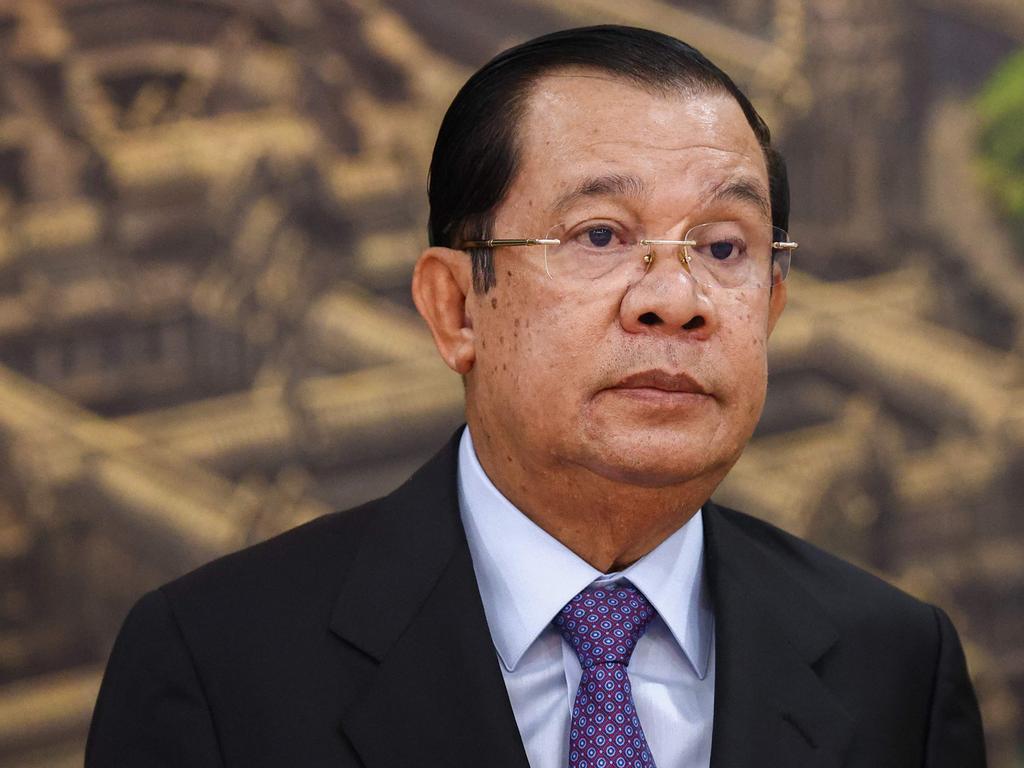Real-life Squid Game horror spills over into Australia
The family of the sadistic overlord behind South Korea’s real-life Squid Game is expected to face legal action from survivors.

The wealthy family of the sadistic overlord behind South Korea’s real-life Squid Game – now living in Australia – is expected to face legal action from survivors after an official inquiry revealed that 657 inmates were killed in the house of horrors.
The landmark report by the country’s Truth and Reconciliation Commission found the inmates died at a sinister facility known as the Brothers Home in the port city of Busan, where thousands of people kidnapped off the streets fought against each other to survive.
Brutal punishments – played out as “games” by overseers – included savage beatings and being made to hang upside down for hours.
Many have drawn parallels with Squid Game, the smash-hit Netflix series in which homeless and out-of-luck South Koreans are plucked from the street to risk their lives by competing in a series of deadly contests. The Australian-based family, of the now-dead camp dictator, Park In-keun, is fighting demands to return to South Korea to face questioning about the source of its wealth, including ownership of a $15m golf driving range and sports complex in Sydney.

The Brothers Home facility was set up in the 1960s but in the years before the 1988 Seoul Olympics, the country’s military dictators ramped up efforts to “cleanse the streets of vagrants”.
As the secret prison became a money-making machine from government subsidies, people with families and jobs found drunk or without proper identification were also rounded up.
In its report issued last week, the four-year-long commission of inquiry found that police randomly seized people off the streets regardless of whether they had easily identifiable homes or families, and even allowed camp guards, who toured the city in trucks, to do the kidnapping themselves.
The report revealed boss Park – a former soldier and boxer – embezzled the wages of thousands of inmates who were forced into slave labour.

The inquiry commission’s chair, Jung Geun Sik, said its findings could be used as evidence for survivors if they pursued lawsuits for damages against the government or any remaining Brothers Home stakeholders, who likely include Park’s family.
The story of Park’s escape to Australia was first unearthed by journalist Mary Ann Jolley, whose Al Jazeera documentary revealed the family’s rise to riches and power in suburban Sydney.
Park ruled the Brothers Home with an iron fist, forming “platoons” in which inmates were forced to compete against and abuse other inmates to survive.

Punishments included “the motor vehicle game”, where the torturer would yell “left indicator” and then hit them in the eye until it was bruised and red; and the “Hiroshima game”, where victims were forced to hang upside down for long periods from the rails of their bunk beds.
Park surrounded himself with loyal family members.
Brother-in-law Lim Young-soon was a director of the home.
All claimed that they were devout Christians.
At the pinnacle of the Brothers Home was a church where Park and others allegedly held “people’s trials” at which those who had tried to escape were savagely beaten in front of thousands of inmates.
Park was arrested in 1987 and charged with illegal confinement but acquitted.

Two years later, he was making a new life in Australia with his family, establishing its own church in Sydney; in 1995, he bought a golf driving range and sports complex in the outer western suburb of Milperra for $1.9m.
Park was again charged in 2014 with embezzling money from one of the family’s social welfare centres in South Korea but died two years later.
Survivors want Lim Young-soon to answer questions in South Korea over the atrocities.
“When we started to delve into the documents from the original 1987 investigation into the home and talk to survivors, it became clear that Lim Young-soon had played a critical role at the home as both a director and pastor,” said Jolley.
Lim Young-soon told Al Jazeera no one had been abused at the Brothers Home and denied he was ever a director of the home, despite being listed on official documents and minutes from numerous board meetings listing him as attending as a director.
Lim Young-soon did not respond to requests by The Australian.
Park In-keun’s youngest daughter, Park Jee-hee, and her husband, Alex Min Kyung-woo, who own the Milperra golf driving range and sports complex, also did not respond to requests.
The family’s assets are in survivors’ sights, especially the 8ha sports complex, which includes a gym, tennis and squash courts.
Held under the family company, Job’s Town, the property – listed for sale in 2020 for $15m – brings them a rental income of more than $400,000 a year.
The commission plans to release more reports as its investigation continues.
Meanwhile, Netflix is developing a reality competition program based on Squid Game, featuring 456 players competing for a large cash prize.







To join the conversation, please log in. Don't have an account? Register
Join the conversation, you are commenting as Logout